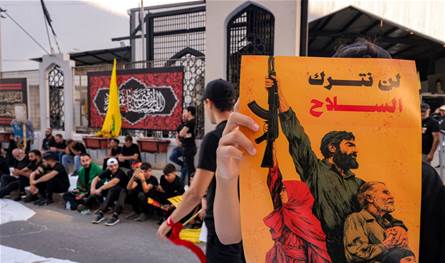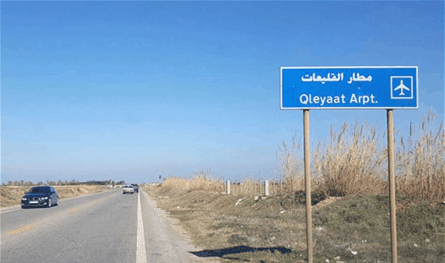Lebanon between the hammer of the Israeli attacks and anvil refused to surrender its weapon

As is apparent through the current political and security scenery, Lebanon is a reality between the hammer of the Israeli attacks on the one hand, and the anvil of the continuation of the rejection of “Hezbollah” to surrender its weapon to the Lebanese state on the other hand, while the international and Arab delegates in Beirut will be successful in bringing them together in bringing the views between the parties to the conflict, which appears to this hour far from each other, a distance measured by the years, Folded from internal repulsion between supporters of the survival of the weapon in the hands of the “party”, and those who claim that the state is the only one capable of protecting its children with its legal weapon from any attack from abroad or from the splendor of the horizons of the interior.
Whatever it is said that the government decisions made in the three sessions are not a charter due to the absence of a basic component of the Lebanese sectarian fabric from these sessions, there are those who say that the decisions issued by the government are one hundred percent charter because the state decided to regain its security role, and to monopolize the weapon. Governmental decisions were taken with semi -Lebanese consensus that represent eighty percent of the total Lebanese people, and therefore these decisions are a charter and there is no dust on their charter. As for what is not a charter, and always according to the theory of the people of government, it is that a Lebanese category that represents the estimated rate of twenty percent of the Lebanese arms, confiscated the decision of war and peace, and Lebanon dragged into a support war in which there was no camel or camel, and in order to be forced into the will of the majority of these Lebanese, who announced from the first day their rejection of the principle This war of tragedies and woes. This is what happened, starting with the treachery incident by the bombing of the “bigeries” and reaching the assassination of Mr. Hassan Nass.
The Lebanese scene is no longer confined to the internal divisions or the game of the Al -Muraha that the Lebanese have been accustomed to years ago. The presence of international delegates to Beirut is no longer a protocol or a show. The Eve Laudrianjan is the name of France, loaded with a more clear mandate, and the Saudi delegate Yazid Bin Farhan holds a conditional support message with reforms and commitment to the state plan, while Morgan Ortigas is preparing to visit Beirut in an indication of a direct American involvement in this file. It is a diplomatic triangle that reflects that Lebanon has entered a new stage of international and Arab care, in a way that transcends traditional data.
Inside, there is no less important. The Lebanese government, in the words of its president, Notef Salam, announced that there was no return to back, and that the army’s plan would be implemented in its entirety. For the first time since 2005, the weapon file has led to the top of the official position as an executive decision, not just a sovereign demand. This development restores consideration to the army as the only reference for security, and it places “Hezbollah” in front of a new reality that he had not previously experienced (double pressure from home and abroad), while Israel continues to target sites that say they are bases for the “party”.
But the question, which will not find his liquid, remains a healing and convincing answer about it: What can Lebanon bet? However, what comes to the mind of the respondent, even if it is unknown, is an answer that can be summarized with three elements: First, the growing international support that can be turned into a political and economic protection network if the government does well. Second, the army plan, which is the only applicable map to restore the exclusive weapon to the state. Third, a regional balance that may impose on all parties to recognize that no one in the survival of Lebanon remains an open conflict arena.
What has changed between yesterday and today is the transition from managing the crisis to trying to impose solutions. However, the success of this transformation will not be measured by the number of delegates to Beirut, but rather with the ability of the Lebanese state to withstand the internal and external pressures, and the willingness of the international community to translate its promises to actions, despite the fact that Israel exerts the most heinous forms of bloody extortion: a systematic shelling under the title of fighting “Hizbah”, while the real goal is to keep Lebanon weak and torn, deprived of any opportunity to advance.
Time, in the opinion of more than a political observer, is no longer available for bargains. Between the hammer of Israel and the “Hezbollah”, “Hezbollah” is on all Lebanese, especially “Hizbah”, to return to their state, which remains the faithful fortress and the only safe shelter.
The post Lebanon between the hammer of the Israeli attacks and anvil refused to surrender its weapon appeared first on 961 tobay Lebanon today.
















